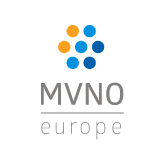
Brussels, 2 August 2018 – Following-up on the hearing of 13 July on the forthcoming auction for 2 GHz and 3,6 GHz radio spectrum held by the German Federal Network Agency (hereafter ‘the BNetzA’), MVNO Europe calls upon the German regulator to provide for mandatory wholesale network access requirements on radio spectrum licensees, or to structurally encourage participants in the German 5G spectrum assignment proceedings to formally commit to offering credible wholesale network access.
Until now, the three incumbent German Mobile Network Operators (hereafter MNOs) – namely Telekom Deutschland, Vodafone and Telefónica Deutschland – made clear they have no intention of enabling non-discriminatory wholesale access to their networks, or to support industrial and Internet of Things (IoT) ecosystems. Many Mobile Virtual Network Operators (hereafter MVNOs), as well as industrial companies willing to develop 5G networks and services, see their commercial and innovation potential curtailed, due to that fact that fit-for-purpose wholesale access to 4G is prevented by these MNOs. MVNO Europe believes that the behaviour of incumbent German operators runs counter to enabling competition and innovation. This is therefore detrimental to consumers’ interests as well as businesses of all sizes.
In this regard, MVNO Europe objects to the claims made by incumbent MNOs at the 13 July hearing, stating that there would be no basis in German or EU law to impose wholesale access obligations as part of radio spectrum licensing proceedings. In fact, in German law, § 60 and 61 of the Telekommunikationsgesetz enable both radio spectrum auctions and tender procedures to be accompanied by pre-conditions – such as the obligation for prospective licensees to commit to provide wholesale access to MVNOs, national, roaming, etc. At the European level, Article 5 of the EU Radio Spectrum Policy programme – which requires Member States to take competition issues into consideration and allows them to impose pro-competitive conditions when granting spectrum access rights – was formally approved by all EU governments in 2012 and is therefore binding. Moreover, similar possibilities and requirements are enshrined in the provisional final text of the European Electronic Communications Code, soon to be adopted.
Therefore, MVNO Europe understands that the BNetzA is required to give reasoned consideration to potentially mandating wholesale network access as part of the 2 GHz and 3,6 GHz spectrum licensing proceedings.
Jacques Bonifay, Chairman of MVNO Europe expressed “concerns that cementing the current market structure would endanger German industrial interests as well as impede both innovation and competition on consumer and business markets.” He further added that “such a market evolution may prevent the emergence of pan-European and global 5G-based services delivered by European companies, given that it will be impossible to ‘scale-up’ in Europe if Germany cannot adequately be served”.
MVNO Europe members are prepared to pay a fair price for wholesale access, in a manner that will not only allow MNOs to make a fast and reasonable return on 5G investment, but also enable innovative developments fully capitalising on new network technologies.
